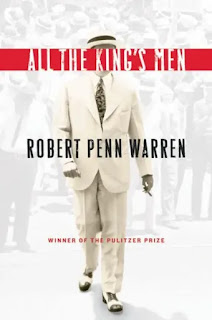 When R.W.W. Greene isn’t writing, he teaches college English and keeps bees. His new book, Earth Retrograde, is the end of a story started in 2022’s Mercury Rising.
When R.W.W. Greene isn’t writing, he teaches college English and keeps bees. His new book, Earth Retrograde, is the end of a story started in 2022’s Mercury Rising.
Recently I asked the author about what he was reading. Greene's reply:
I read a lot. This year I tried to keep track of it all, and according to GoodReads, I’ve put 96 books in my brain since Jan. 1. I read mostly for pleasure, sometimes for education, occasionally seeking a model for my own writing.Visit R.W.W. Greene's website.
The day before yesterday, I finished Ryka Aoki’s Light from Uncommon Stars. It’s a wonderfully strange mashup of sci-fi and fantasy, doughnuts, competitive-violin playing, online sex work, and found family. I loved it.
Right before that, I read The Grand Dark by Richard Kadrey. You might recognize him from his Sandman Slim stuff, but this is notthat. It’s morphine- and burlesque-drenched post-apocalyptic urban fantasy/sci-fi with androids, genetically-modified organisms, and a bike-messenger hero. Just gorgeous stuff. Each page reeks of coal smoke.
Yesterday, I read The Secret Sky Express or Slim Tyler Saving a Fortune, a 1932 ‘book for boys’ by Richard H. Stone. I read it for the first time back when it was more age appropriate and picked it up again because I’m writing some pulpy adventure stuff and wanted to have that voice in my head. Not all of it. Slim Tyler and his pals have a tendency to ‘ejaculate’ words when they’re excited, and I like to stick with ‘said’.
What’s next? I shant tell you the title, but it’s a sci-fi book that I’ve opened several times in the last couple of days but keep bouncing off of. I can’t get any traction on the paragraphs, and I’m not sure if it’s a problem with me or with the book. I’m going to give it one more try tonight.
If you want to see all ninety-six that I’ve read so far, you can check out my GoodReads page. I’m R.W.W. Greene there, too.
The Page 69 Test: Mercury Rising.
Q&A with R.W.W. Greene.
--Marshal Zeringue




















